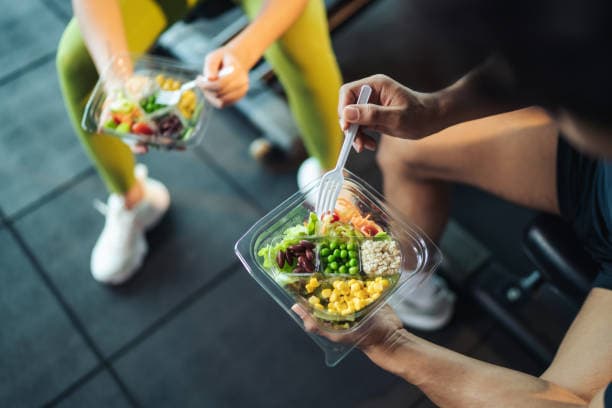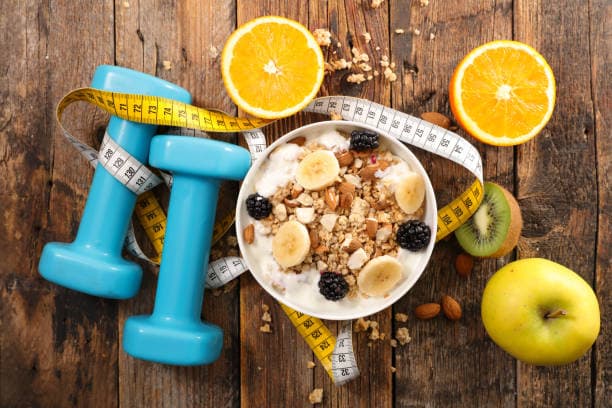Eating well is a very important part of doing well in sports. It’s kind of like putting good petrol into a car. The car runs better when it has good gas.
Athletes need to eat well more than just to stay full. They need to fuel their bodies so they can perform at their best and heal quickly.
What you eat can have a big effect on how fast you run, how long you can go, and how quickly you heal after working out. No matter how hard you work, your body can’t do its best without the right nutrients.
The Role of Nutrition in Sports
Your body runs on the food you eat. Carbs, proteins, and fats are the three main types of foods that give you energy.
- Carbohydrates give us energy. They are broken down into glucose, which your body uses to get energy quickly while you work out. It’s like the quick speed you need to run a sprint.
- Muscle growth and healing depend heavily on proteins. Your muscles tear in small pieces every time you work out. Protein helps fix these tears, which makes your muscles stronger over time.
- Fats give you energy that lasts for a long time. They keep you going for a long time or over long distances, like slow-burning logs on a fire.
Eating Before a Workout
What you eat before you work out is very important if you want to get the most out of it. It’s all about giving your body what it needs to do its best. You can think of your body as a car. It won’t run right without the right gas. The best food is one that has both carbs and protein. Protein gets your muscles ready for the workout ahead while carbs give you the energy to work out hard and long.
What to eat:
- Oatmeal with fruit: This is great for a slow release of energy, keeping you going throughout your workout.
- Banana or an apple: Perfect for those last-minute energy needs, these fruits are easy to digest and provide a quick energy boost.
- Yoghurt and granola: Offers a nice balance of carbs and protein, fueling your muscles and providing energy.
Timing: Timing is everything. Having a big meal Giving your body three to four hours to digest before you work out is good. If you missed that window, though, a small snack 30 to 60 minutes before your workout can still give you a big energy boost without making you feel bad while you work out.

Eating During a Workout
For most people, eating during a workout is not required. But if you’re doing long-term physical tasks like a marathon, cycling long distances, or long-term sports competitions, your body will need a little extra fuel to keep going. For those interested in maintaining their energy levels and maximizing performance or for fun, it might be worthwhile to explore some of the reviews by Steve Ashwell on reliable online casino sites.
What to eat:
- Energy gels: These are concentrated sources of energy, designed to be absorbed quickly and easily while on the move.
- Small pieces of fruit: Fruits like oranges or apples provide natural sugars, giving you a quick energy boost without weighing you down.
- Sports drink: Not only do they provide energy, but sports drinks also replace electrolytes lost through sweat, helping maintain your performance.
Eating After a Workout
What you eat after a workout helps your body recover and get ready for the next task. Your body’s energy stores are used up after working out, and muscles need to be repaired. Giving your body the right foods can help this process go faster.
What to eat:
- Protein shake or a glass of chocolate milk: Both are excellent for muscle repair. They provide protein for muscle recovery and carbohydrates to refill energy stores.
- Chicken with vegetables: A solid meal that offers lean protein to repair muscles and a variety of nutrients from vegetables to fight inflammation.
- Whole grain toast with peanut butter: Offers a hearty combination of complex carbohydrates and protein, aiding in muscle repair and energy replenishment.
Timing: The best time to eat after working out is thought to be within 45 minutes. This is the best time for your body to use the nutrients you eat to build muscle, fix muscle damage, and get back the energy you lost.
Summary
Good nutrition fuels your workouts, helps you power through, and aids in recovery afterwards. It’s important to find the right balance of carbohydrates, proteins, and hydration for your specific needs. Listen to your body’s signals, and consider consulting a nutritionist or dietitian to fine-tune your diet to match your sports goals. Tailoring your nutrition can make a big difference in your performance and recovery.
